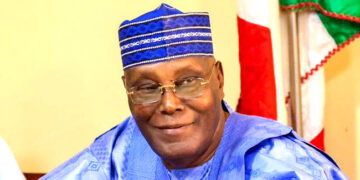![]()
– By: Olalekan A. Shoyinka (AYINLA EGBA)
The recent controversies trailing the burial of the late Awujale and paramount ruler of Ijebuland, His Royal Majesty, Oba Sikiru Kayode Adetona (may Almighty Allah bless his soul), have taken a legal dimension as the International Council for Ifa Religion (ICIR) prepares to challenge the Ogun State Government and the royal family over the manner of the monarch’s burial rites.
According to Dr. Fayemi Fakayode, President of the ICIR, the burial was a breach of tradition and contravened existing state laws, particularly Part 8, Section 55, Subsection II of the Ogun State Chieftaincy Law. This section, as quoted during a media briefing in Ibadan, mandates the performance of traditional rites for deceased Obas, rather than religious alternatives. Dr. Fakayode also lamented the exclusion of the Osugbo Confraternity, the traditional custodians of the final rites in Ijebuland.
In response, the Ogun State Government, through the Honourable Attorney General and Commissioner for Justice, Mr. Sina Ogungbade (SAN), yesterday has stated its readiness to face any legal action. However, he remarked that any such litigation would amount to a waste of time and resources, particularly since the monarch was buried in accordance with his personal religious beliefs.
While I acknowledge the legal right of any group to seek redress, I believe the energy and resources likely to be expended in such a legal battle would be better directed toward more fundamental issues within our traditional system.
LET US TACKLE THE ROOT, NOT JUST THE BRANCHES
The truth is this: we arrived at this cultural crossroads not by accident, but by the gradual erosion of sacred values in our traditional institutions. The focus should not only be on how a king is buried, but more importantly, on how kings are selected and enthroned in the first place, and what follows when they get enthroned.
Our custodians of culture and tradition must lead a reform movement—one that reviews and strengthens the process of selecting traditional rulers. Today, it is not uncommon to see kings emerge based on political influence, material wealth, diaspora credentials, or religious affiliations—often overriding the guidance of the Ifa oracle.
This misplacement of values will continue to produce monarchs who, though expected to be the spiritual and cultural heads of their communities, will instead sideline those very traditions they are crowned to uphold. If this continues unchecked, we may one day witness a king rejecting the title “Oba” in favour of “Obi” or “Duke” because he believes “Oba” is fetish. What becomes of our heritage then?
A WARNING FROM THE FUTURE
We must ask ourselves: what happens when a future Ooni cancels the Olojo Festival in favour of a Western-style carnival? Or when traditional initiation rites such as Ipebi—the seclusion that educates future kings on their ancestral lineage, dos and don’ts, and sacred obligations—are completely discarded?
This is not a battle against personal faith. I am a Christian by belief, and I respect all religions. But I also know that anyone aspiring to ascend a revered traditional stool must be ready to serve as the custodian of our indigenous values and deities. If your faith forbids that, then perhaps you are better suited to be a church Overseer or Grand Imam—not a king.
A king in Yorubaland is not just a ruler; he is the spiritual anchor of his people, overseeing Oro, Sango, Obatala, Esu, and other divine embodiments of our collective identity. All religions and sects are under the throne, not above it. Whoever cannot uphold this sacred order should not seek the crown.
WHAT SHOULD THE IFA COUNCIL DO INSTEAD?
Rather than focusing on court battles that may yield little more than media headlines, I encourage the International Council for Ifa Religion (ICIR) to champion reforms that:
1. Reinstate the primacy of the Ifa oracle in kingmaking.
2. Ensure transparency and integrity in the selection process.
3. Stop the monetization and politicization of traditional institutions.
4. Engage kingmakers to resist influence and stand by the truth.
Let us remember the Yoruba adage: “Omo ale lo nfi owo osi juwe ile baba e.” (Only a bastard points at his father’s house with his left hand.)
If we want to preserve what our ancestors handed to us, we must act before it becomes irredeemable.
FINAL THOUGHTS
Oba Adetona’s burial according to Islamic rites is not illegal—it has precedence and will likely not be the last. The real issue is how we protect the essence of kingship going forward. Let the ICIR and other cultural institutions rise to the occasion, not in opposition to government, but in defense of tradition—by correcting the process, not fighting its end.
This is the time to reflect—and to reform.
By Hon. (Chief) Olalekan A. Shoyinka (AYINLA EGBA),
Gbadegesin Ijemo, Egbaland;
Convener, United Premier Movement (UPM), Abeokuta

























